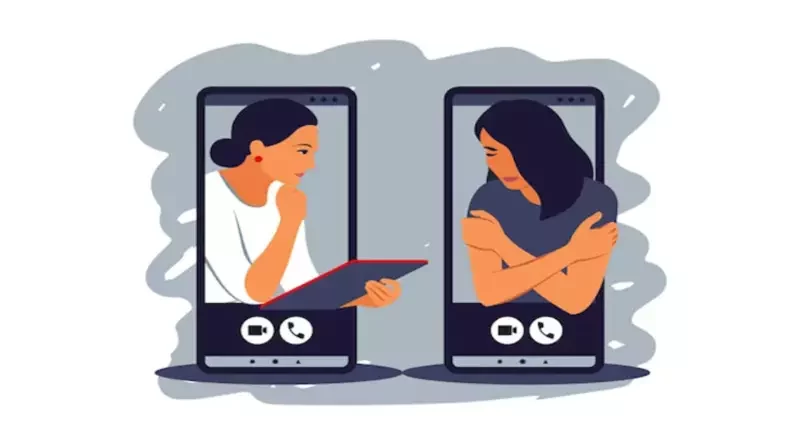The Impact of Relationship PTSD on Mental Health
Your emotional and mental health might suffer greatly from abusive relationships. To put it mildly, it can be excruciatingly unpleasant and incredibly upsetting when someone you care about and trust: Starts to make fun of or minimise you tries to coerce or trick you into doing what they want becomes violent or sexually abusive
These actions harm you in more ways than one. They can ruin your sense of security, undermine your sense of worth and self-worth, and make it difficult for you to put your trust in other people. If you stop the relationship, family members may try to cheer you up by telling you that once you’ve healed, you’ll find someone better, someone kind, safe, and caring.
They may have assured you that you can ignore the reminders of the connection in your thoughts, but you could still feel unable to do so. There’s a reason for that: Trauma isn’t something you can just brush off and move on from. The following information relates to post-traumatic relationship syndrome, often known as relationship-based PTSD.
What is relationship PTSD?
You’re probably aware that even after a single traumatic occurrence, dread and distress can remain. PTSD may be identified by mental health specialists when flashbacks, avoidance, and other symptoms continue after the event has passed. Trauma of a different sort occurs in abusive relationships. Repeated verbal, physical, or sexual abuse can end when a couple separates, but you might not be completely free of its effects. Experts have developed the idea of post-traumatic relationship syndrome in an effort to more effectively identify and treat this particular sort of trauma (PTRS).
Individuals who go through intimate relationship abuse—physical, sexual, or emotional—may react to trauma very differently from those who go through other kinds of traumatic experiences. You might keep going back to the memories of the abuse and feeling them once more rather than ignoring and numbing yourself to them. The suffering caused by this traumatization might prevent a person from getting better, moving on, and finally forming secure, loving bonds with potential mates.
Causes of relationship PTSD
One or more traumatic incidents that happened while a couple was together are the cause of relationship PTSD. Usually, but not always, abuse is a factor in these occurrences.
The following are a few instances of relationship abuse:
• Bodily injury (violence, damaging personal property, coercing self-harm, or substance abuse)
• Mental abuse (insults, threats, stalking, controlling what you do)
• Abuse of women (rape, sexual assault, coercion)
• Abuse of money or resources (withholding money, taking money)
• Abuse of technology (controlling social media, monitoring devices)
• Abuse of religion (controlling religious beliefs, preventing you from practising your religion)
These kinds of abuse can have a serious negative impact on one’s health and lead to PTSD in romantic relationships.
Signs and symptoms of relationship PTSD
Several symptoms of general PTSD and relationship PTSD are similar. Yet, some PTSD symptoms are more (or less) frequent among people with relationship PTSD due to the particulars of domestic abuse. Intrusive symptoms are more common in people with relationship PTSD than avoidance symptoms. A person with relationship PTSD frequently replays significant traumatic events in their thoughts. Those who have relationship PTSD frequently place the responsibility for what occurred on them and spend time trying to figure out what went wrong. Of course, from the perspective of an outsider, it is obvious that the person is a victim, but it isn’t necessarily clear to a person who is experiencing PTSD.
Be compassionate to yourself if you’ve gone through abuse or trauma in relationships. Your trauma may be impairing your judgement, but if your partner (or ex-partner) is an abusive or toxic person, they will bring their destructive behaviours into every relationship, and it is not your fault because of their poisonous character. Speak to a medical professional or support group if you think it would be beneficial.
Effects of relationship PTSD
If you’ve ended a toxic relationship and are unsure whether the intrusive thoughts you’re experiencing are normal, look out for these indicators of relationship PTSD:
• Having irrational distrust concerns
• Gravitating towards domineering, abusive partners
• Taking minor arguments or mistakes too seriously or responding inappropriately
• Destroying new connections
• Ripping apart or obsessing over your current relationship
• Feeling defensive about your partner selection
It is necessary to elaborate that the inability to trust a new partner is the most typical symptom of relationship Trauma. Naturally, it’s important to exercise caution as you get to know someone, but if you find it difficult to trust someone new in your life despite the fact that they haven’t done anything to violate your trust in them, you may be suffering from relationship PTSD.
Get assistance right away if you are currently in an abusive relationship. Alternatively, you should seek medical attention as soon as possible if you’re having trouble recovering from the trauma of a previous relationship. Despite the fact that facing your past may seem intimidating, many doctors have received training in how trauma and abuse affect people. Thus, consulting a doctor can be helpful and is frequently a necessary step in the recovery process.
Submit a message using the Talk to Angel tool, which connects patients with therapists, to locate the appropriate therapist. supplementary to “online counselling” or online counsellor TalktoAngel.



